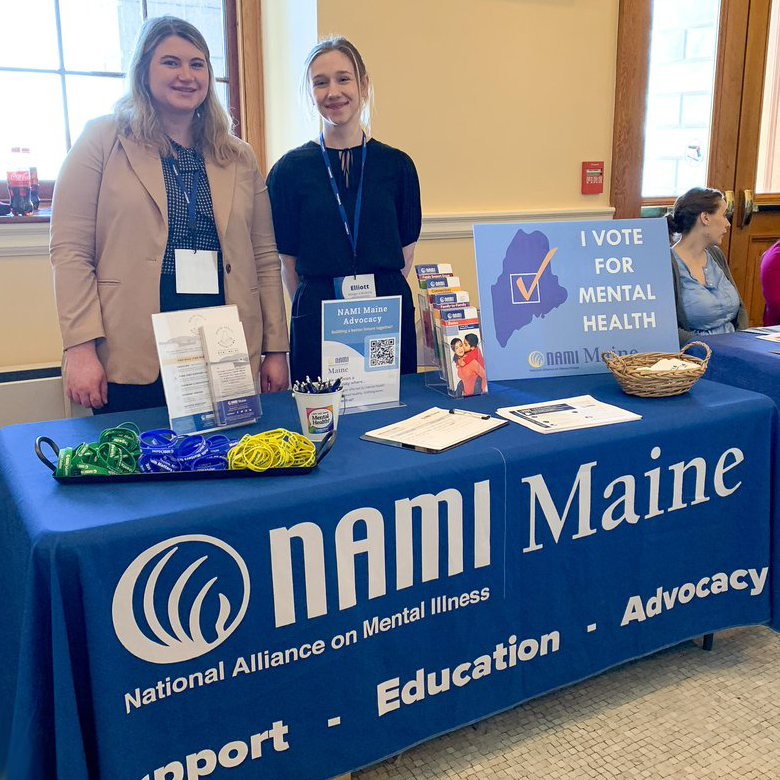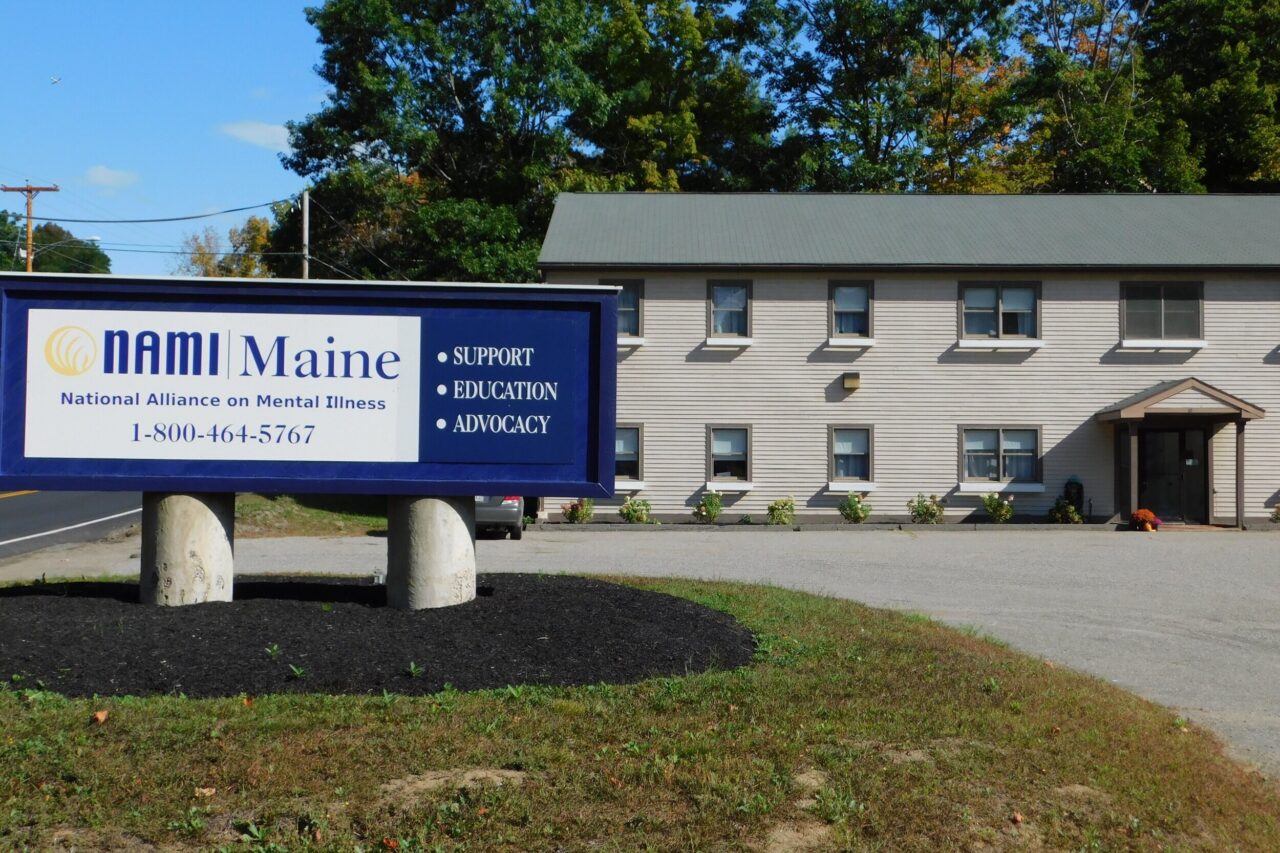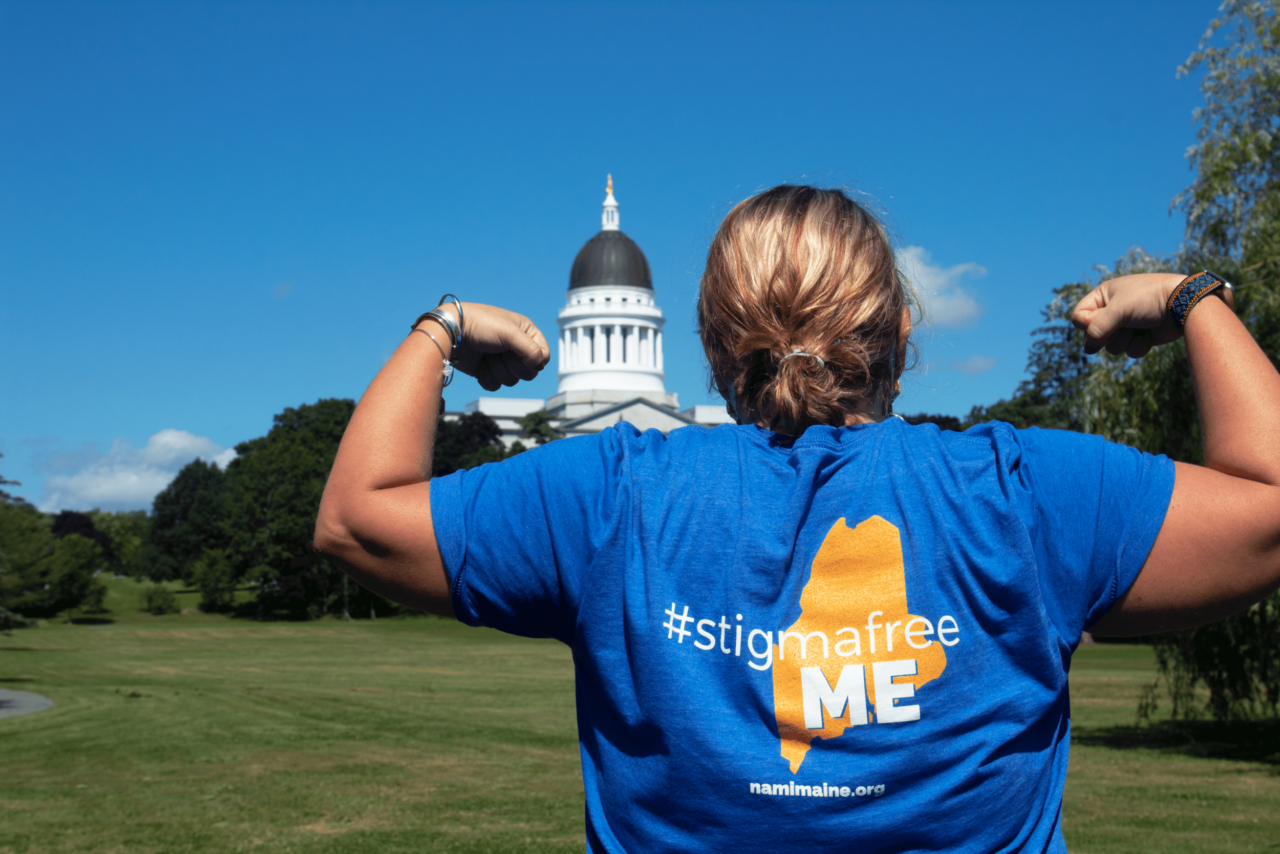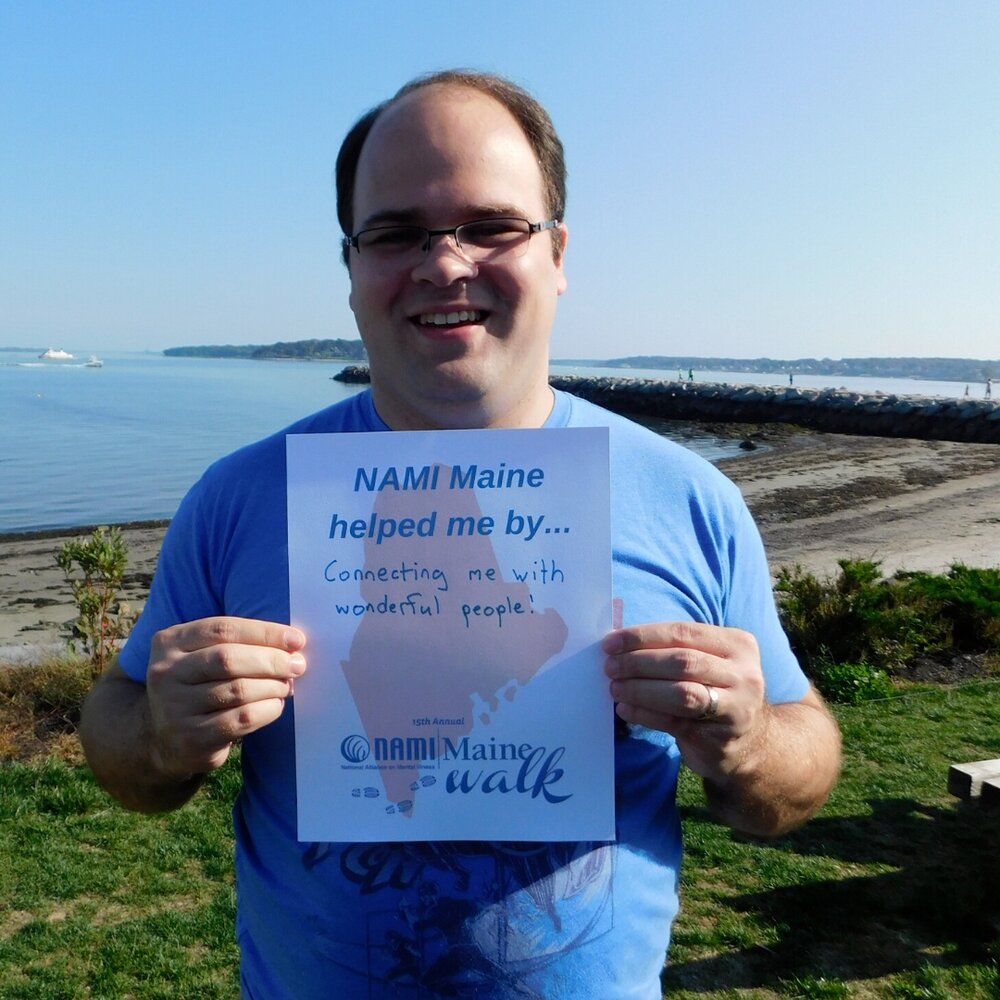In Maine Schools


All Maine School Districts Are Required to maintain a minimum level of suicide prevention training and preparation, based on the law passed in 2013 and revised in the spring of 2019. Specifically, each school administrative district is required to:
• Ensure that ALL staff complete a 1-2 hour suicide prevention awareness training,
• Ensure that a minimum of 2 district staff complete a full day “Suicide Prevention Gatekeeper” training. Districts with more than 1000 students are required and additional trained staff member for each 500 students over 1000. The law recommends a Gatekeeper in each school building.
• Both the Awareness Session and the Gatekeeper training must be renewed every 5 years.
• The 2019 revision of the law now requires each administrative district to develop and implement comprehensive protocols addressing how it implements suicide prevention, intervention with someone at risk and how it provides for support and reduces risk of contagion after a suicide loss or attempt.
NAMI Maine, working in partnership with the Maine Suicide Prevention Program and the Maine Department of Education, provides a range of training and technical assistance to support schools to meet and exceed the suicide prevention training mandate. To learn how we can support your school please contact Amanda Bouffard, Suicide Prevention Coordinator at (800) 464-5767 ext. 2318 or MSPP@namimaine.org.

Trainings Offered to Maine Schools:
SUICIDE PREVENTION AND AWARENESS PRESENTATIONS
A 1-3 hour presentation intended to increase suicide prevention awareness in a general audience, or within staff meeting and conference workshop setting. This training will provide general and basic information on suicide and suicide prevention with resources available for further training. It is also used to tailor the presented material for specific groups of increased risk, including men, veterans, older adults, the LGBTQ community and others.


Gatekeeper Training
Gatekeeper Training is the foundation of the Maine Suicide Prevention Program (MSPP) and is a pre-requisite to the MSPP school-based curriculum training and the Training of Trainers. The Gatekeeper provides a deep overview of suicide in Maine and the US, and teaches basic intervention and resources for response.
This full-day training for adults in school and community settings will fulfill the requirements for school staff in complying with the Suicide Prevention training mandate requiring each school district to have at least 2 Gatekeeper trained staff.
This training will provide:
-
The fundamentals of suicide prevention
-
The stigma of suicide and how to hold the conversation
-
Up-to-date information about suicide
-
Basic suicide intervention skills
-
Personal confidence and the ability to effectively respond to suicidal behavior
-
Helpful resources for intervention and in the aftermath of a suicide

A Virtual Training in 3 Sessions
The incidence of suicide among our youth in Maine and across the Country has been on the rise in recent years. The school environment presents an ideal setting to recognize risk and to intervene with a student who is struggling and may harbor thoughts of suicide. The state mandated suicide prevention awareness sessions and the mandated minimum number of Gatekeeper trained staff form a solid foundation for prevention. But, once recognized, potential risk for suicide must be assessed and informed decisions made regarding level of care to preserve safety and stabilize the crisis. It is imperative that school clinicians feel competent in the basic skills of assessing suicide risk and have a working understanding of how to manage the ongoing needs of a student with varying levels of risk. This training is designed to help meet the need for developing risk assessment and management skills for youth suicide risk.
Suicide Assessment and Management for School Clinicians is a virtual 3-part workshop designed to prepare a new or seasoned school clinician to understand the risk of suicide, how to approach and complete an effective suicide risk assessment and intervention and ongoing management for a student at increased risk. The focus is on assessment skills within a school setting, for those working in clinical roles including counselors, social workers, nurses and psychologists. The Columbia Suicide Severity Rating Scale (C-SSRS) will be used as a recommended tool for assessment. A systemic approach to suicide prevention is followed where assessment, intervention, Collaborative Safety Planning and assured follow-up are the critical elements. Assessment and Safety Planning tools and model documentation forms will be included for ongoing use.
This training is currently presented in 3 sections of 90 minutes each, held weekly and presented LIVE over a virtual platform.
For clinical staff working in a school, this training can be counted for suicide prevention Gatekeeper Training Renewal.

SUICIDE PREVENTION AND MANAGEMENT LEARNING COLLABORATIVE FOR SCHOOL DISTRICTS:
A Targeted Learning Opportunity
The Suicide Prevention Learning Collaborative is an opportunity for the clinical support staff in a school district to meet together several times in a guided process addressing how they work collectively to prevent suicide. This will cover aspects of suicide prevention, assessment of risk and intervention, management of ongoing needs, and postvention support after a loss or significant attempt. Each district learning collaborative would include input and participation from school clinicians, school counselors, school/district administrators, etc.
The Learning Collaborative involves 2-3 meetings of 1-2 hr duration. The sessions can be arranged to be virtual or in-person depending on COVID-19 precaution needs. NAMI Maine staff will be available throughout the process and after to offer input and technical assistance as a school district adapts the model forms and process to fit the needs of their community. We will provide the district with model forms and resources that can be adapted to you needs.

LIFELINES SUICIDE PREVENTION LESSONS
VIRTUAL LEARNING
A virtual 3-part workshop for teachers previously trained in the Lifelines Suicide Prevention Curriculum. Join facilitators to collaborate on the development of recommendations for teaching Lifelines in a hybrid or remote classroom setting.
By the completion of the training, participants will have developed and practiced completion of lessons in a virtual high school setting.
TRAINING OF THE TRAINER (TOT) FOR SCHOOLS:
Learn to Present a Suicide Prevention Awareness Session
A half-day program available to train Gatekeepers to facilitate a 1-2 hour suicide prevention awareness session for co-workers, school staff, and/or other community members. Materials, including the PowerPoint presentations and model handouts are provided for preparing, planning, and conducting the sessions.
Prerequisite:
Recent Completion of Gatekeeper Training (within the last 5 years)

RESOURCES:
TRAINING OF THE TRAINER (TOT) FOR SCHOOL STAFF
Sponsored by the Maine Suicide Prevention Program (MSPP) led by the Maine CDC in DHHS
These are the resources that can be used to present a Suicide Prevention Awareness session after completing the Training of the Trainer (TOT) training for school staff. Click the button below to access a shared folder of resources.

SCHOOL PROTOCOL DEVELOPMENT
If a school community experiences a suicide or a significant suicide attempt, it is a time of crisis. Every school district is required to develop and implement comprehensive protocols informing how they manage suicide prevention, intervention when there is a risk of suicidal behavior and their response in the aftermath of a suicide attempt or loss. These protocols address the needs of the administrators, teachers/staff, students, and parents.
The likelihood of schools encountering a potential suicidal situation is real. Maine loses an average of 26 youth under age 25 to suicide per year. Protocols provide school staff with direction, structure and support to safely assist in a suicidal situation, including: prevention, intervention, and postvention. This is why NAMI Maine is dedicated to ensuring that school administrators, teachers, and staff have every available resource to create the necessary protocols for dealing with a crisis. Please use the documents below to assist in the process of developing your own school protocol in addition to attending NAMI trainings.
Additional Resources for Developing your School Protocols:
-
Suicide Prevention Awareness Toolkit for Maine School Personnel (see more below)

Offered for School Personnel or in a Healthcare Setting
Non-suicidal self-injury (NSSI) is the direct, deliberate destruction of body tissue in the absence of suicidal intent. It has been on the rise over the past 2 decades. Among youth and young adults, it is frequently an issue of concern in education, health and behavioral health settings. Though usually not a suicidal act, there is significant connection between self-injury and suicide risk that must be understood and addressed.
This training will review demographics, risk factors and warning signs of self-injury as well as recommendations for assessment, intervention and management of self-injury. Introduction to NSSI protocol development and implementation will be offered as well as resources to support professional staff to address assessment and ongoing treatment needs.
*This training is recommended for nurses, behavioral health clinicians and other professional staff working in educational or healthcare settings. Additional resources on the topic of Non-Suicidal Self-Injury:
The Cornell Research Program for Self-Injury Recovery: Excellent information for family members & professionals on a wide range of self-injury topics
Adolescent Self Injury Foundation: Provides education, prevention tips, and resources for self-injurious adolescents and their families
Please reach out to us for additional assistance as needed.


Prerequisite: Completion of Suicide Prevention Gatekeeper Training
Curriculum Training for Teachers
Learn How to Teach Youth about Suicide Prevention. This full-day program is for health educators and other school professionals who will implement Student Suicide Prevention lessons in their school health curriculum. These lessons are aligned with Maine Learning Results-Health Education Standards and are part of a research-based, field-tested program, which has been evaluated in Maine. The overarching goal of the lessons is to provide students with the knowledge and the rationale for them acting in support of suicide prevention and intervention with their peers AND to support them reaching out to a responsible adult in times of need. Courses are available for both high school and middle school staff. This training is supported through use of the copyrighted Lifelines Suicide Prevention Manual for Schools which also includes material for presenting in 5-6th grade.
-
The Middle School Lessons for Suicide Prevention are developed for delivery within grades 5 – 8 and include mental health, stress and coping strategies as well as suicide awareness. Students will learn the positive and negative aspects of life stress, the basics of mental health and mental illness, coping strategies, and suicide prevention.
-
The Lifelines Program is designed to be delivered within grades 7 – 10 and offers basic suicide awareness and how to access help through caring adults. It builds on the lessons of the Middle School Lessons, but can be offered as a stand-alone curriculum.
Who Should Attend?
-
School health teachers
-
School administrators
-
School-based clinicians
-
Behavioral health staff


COLLABORATIVE SAFETY PLANNING
In a School Setting
Best practice recommendations for addressing and managing suicide risk include use of a good assessment tool for determining risk and guiding intervention. A vital next step is the collaborative development and use of a Safety Plan to help an individual to manage themselves during and following periods of crisis. A Safety Plan is a tool and a process for working with a student (and family) to identify and increase the use of coping skills, social and family support and professional resources. It is often used with people at increased risk for suicide, but is an excellent tool for use with anyone at risk for escalating crisis. This session will provide the tools and process for implementing safety planning for supporting students at risk in Maine schools.
Prerequisite: Completion of Suicide Prevention Gatekeeper Training or Suicide Assessment for Clinicians

For Schools & Organizations
Where a Suicide Loss Has Been Experienced
The sudden traumatic loss of a student or a well-known staff member can have a devastating impact on the school community; students, staff and parents. The risk for contagion is a real focus in the aftermath as other students can be deeply affected and act upon their distress. NAMI Maine Suicide Prevention staff are available to work closely with the school and community resources to provide guidance, resources and support during the critical first days and weeks following a loss. In spite of planning and protocols, a student suicide leaves school staff shaken; we seek to connect with school administration and/or clinical staff immediately following the loss to offer our experience and resources.
Postvention services offered to schools:
-
Consultation and guidance on supporting your school
-
Connection to resources to support your efforts
-
Referrals to supports in your region
-
Debriefing support for school staff and clinicians
-
A Suicide Loss and Prevention Session for parents and the community

Reach Out:
Greg Marley, Clinical Director (800) 464-5767 x 2302
Julianne McLaughlin (800) 464-5767 x 2318 or email MSPP@namimaine.org









